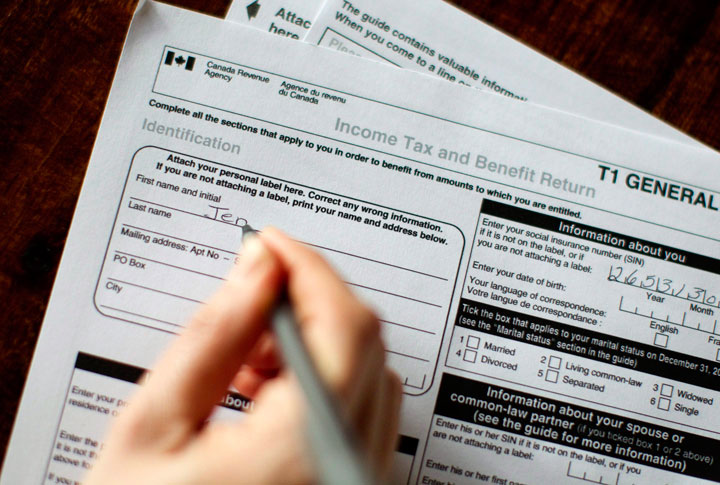A lack of financial literacy, steep fees and a general distrust of the federal government are some of the reasons why Indigenous Canadians might not file an annual tax return, new research has found.

A qualitative study conducted on behalf of Ottawa last winter and spring in First Nations communities across the country has revealed that while a majority of participants do file their tax returns on time and on an annual basis, there are still a significant number who do not — and they are losing out on potential government benefits as a result.
“The objective of the research was to develop a better understanding of the reasons that Indigenous Peoples may file, or not file, a tax return,” notes the study’s final report, made public this week.
“The (Canada Revenue Agency) intends to use the research findings to develop outreach programs and communication products to help individuals access benefits and credits available through the tax system.”
Without filing a tax return, for instance, it’s impossible for any Canadian to be approved for the government’s new Canada Child Benefit, or for a GST/HST credit.
READ MORE: As the Canada Child Benefit turns 1, who has actually benefited?
The researchers, from Phoenix SPI, travelled to 12 different communities in Alberta, Ontario, Quebec, Newfoundland and Labrador, the Northwest Territories and British Columbia. They held focus groups with local band leaders and community members and also conducted 42 in-depth telephone interviews with “intermediaries” — people who work in Indigenous communities.
The results reveal that among the minority of participants who said they don’t file their annual tax return, the most common reasons given were that they didn’t feel the need to do so (due to tax-exempt status or no off-reserve income to declare), a lack of understanding of the system and how to file a tax return, the costs associated with filing (paying an accountant or travelling to an accountant’s offices, for instance), having no one to help complete a return, and concerns about owing back taxes.
WATCH: Canadian teachers unsure how to teach Indigenous content

Less common reasons given by a small number of participants were apprehension about being “tracked” by the government, a sense of alienation or of frustration over grievances and injustices that have yet to be addressed, and the belief that Indigenous Peoples are members of separate nations with no allegiance to Canada.
Intermediaries also cited social issues, like substance abuse and addiction, as leading to situations where people “become unable to take on tasks/responsibilities or become completely oblivious to them.”
“The most frequently identified advantage or benefit to filing an annual tax return was getting refunds or benefits payments,” the researchers noted.
“Other perceived benefits include the view that it is a good habit to develop, the importance of having a paper trail/being on file with the CRA, avoiding the inconvenience of back-filing, and needing tax returns if one wants a loan or mortgage.”
Younger people, who may not be able to take advantage of credits like the Canada Child Benefit, tended to be less likely to file an annual tax return.
READ MORE: Average Canadians pay 42.5 per cent of their income in taxes, report says
Personal experiences with the CRA tended to vary, the results show.
While some Indigenous participants said they had “friendly” and “helpful” interactions with the agency and its staff as they tried to get more information about tax filing, some others described their encounters as “confrontational,” “badgering” and “frustrating.”
Moving forward, the report states, the Canadian government can do a few things to help encourage more First Nations community members to file a return every year. The most effective strategy, according to the focus groups, would probably be in-person visits from the CRA to their communities, with a focus on the reasons to file and on-reserve training or other help with filing.
Ottawa is also being encouraged to develop tools and materials that are targeted to and adapted for Indigenous Peoples, and to use existing community communications channels like Facebook or local radio to help people understand the importance of filing.
According to a recent report from CBC News, the CRA is aiming to increase the tax filing rate in Indigenous communities by “at least 10 per cent by the year 2020.”
The total cost of the Phoenix SPI research project was $152,597.
- Iran fires air defences at military base after suspected Israeli drone attack
- U.S. aid to Ukraine, Israel set to pass. But bills differ in one key area
- Carbon rebate labelling in bank deposits fuelling confusion, minister says
- Conservatives ask interference inquiry judge to rule elections were flawed




Comments